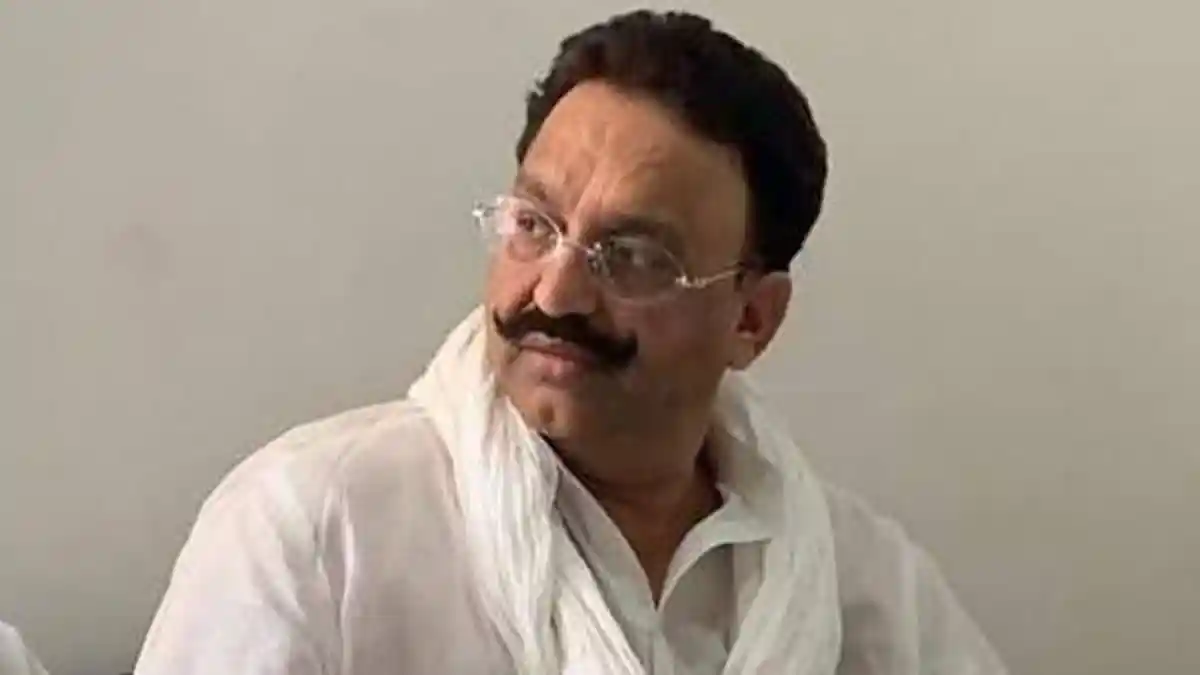Varanasi Court’s Landmark Decision,” we delve into the intricate web of crime and politics as exemplified by the recent sentencing of Mukhtar Ansari. This significant legal development sheds light on the challenges faced by the Indian judiciary in upholding justice and combating corruption within the political sphere. Ansari’s journey from a notorious criminal to a prominent political figure underscores the blurred lines between law enforcement and political influence. As we analyze the implications of his conviction, we reflect on the broader issues of governance, accountability, and the rule of law in India. Through comprehensive reforms and strengthened judicial oversight, we aim to foster a more transparent and equitable society where justice prevails for all citizens.
Notorious Criminal-Turned-Politician Faces Life Sentence in Fake Arms License Case
The recent judgment by a Varanasi court sentencing Mukhtar Ansari, a prominent criminal-turned-politician, to life imprisonment for his involvement in a decades-old fake arms license case has brought renewed attention to the intersection of crime and politics in India.
Legal Battle and Conviction Marks Eighth Verdict in Mukhtar Ansari’s Ongoing Legal Saga:
Mukhtar Ansari’s life sentence marks his eighth conviction since September 2022, underscoring the complexity and severity of the charges against him. As a notorious figure with a long history of criminal activities, Ansari’s legal battles have garnered widespread public interest and scrutiny.
Mukhtar Ansari: From Criminal Allegations to Political Consequences
Mukhtar Ansari, once a feared mafia don, entered the realm of politics, further complicating his legal entanglements. The Varanasi court’s decision reflects the ongoing struggle to hold individuals accountable for their actions, particularly those who wield political influence.
Implications of the Verdict: Legal and Political Ramifications:
The implications of Ansari’s conviction extend beyond the confines of the courtroom, with potential ramifications for the political landscape of Uttar Pradesh and beyond. As a polarizing figure with a significant following, Ansari’s legal troubles have far-reaching implications for the state’s political dynamics.
Mukhtar Ansari’s Criminal Record and Legal Battles: A Detailed Overview:
Ansari’s extensive criminal record and ongoing legal battles paint a complex portrait of a figure who straddles the worlds of crime and politics. From multiple convictions to pending cases, his legal saga is a testament to the challenges of combating organized crime and corruption within the political arena.
Legal Process and Judicial Oversight Ensuring Accountability and Justice:
The Varanasi court’s verdict against Mukhtar Ansari underscores the importance of a robust legal system and judicial oversight in upholding the rule of law. As the legal process unfolds, it is essential to ensure transparency, fairness, and accountability in addressing criminality, irrespective of individuals’ political affiliations.
Mukhtar Ansari’s life sentence represents a significant development in the ongoing legal saga surrounding the notorious figure. With eight convictions since September 2022, Ansari’s legal battles have captivated public attention and raised questions about the intersection of crime and politics in India. As he faces the consequences of his actions, the implications of his conviction extend beyond the confines of the courtroom, impacting the political landscape of Uttar Pradesh and beyond.
Ansari’s journey from a feared mafia don to a prominent political figure underscores the complexities of governance and law enforcement in India. His extensive criminal record and ongoing legal battles serve as a stark reminder of the challenges in combating organized crime and corruption within the political arena. As the legal process unfolds, it is imperative to ensure transparency, fairness, and accountability to uphold the rule of law and restore public trust in the judicial system.
Despite the legal proceedings, Ansari’s case raises broader questions about the nexus between crime and politics. It highlights the need for comprehensive reforms to address systemic issues and strengthen institutions responsible for upholding justice and accountability. By addressing the root causes of criminality and enhancing governance mechanisms, India can foster a more equitable and just society for all its citizens.
Conclusion:
The Varanasi court’s landmark decision to sentence Mukhtar Ansari to life imprisonment in the fake arms license case signifies a pivotal moment in India’s legal landscape. Ansari’s journey from a feared criminal to a political figure underscores the intricate challenges faced in combating organized crime and corruption within the political arena.
With eight convictions since September 2022, Ansari’s legal battles have not only captured public attention but have also raised pertinent questions about the integrity of the political system. His case serves as a sobering reminder of the imperative to uphold the rule of law and ensure accountability, regardless of an individual’s political affiliations or influence.
As Ansari faces the consequences of his actions, it is imperative to reflect on the broader implications of his conviction. The judiciary’s unwavering commitment to justice and transparency is essential in restoring public trust and fostering a more equitable society.
Moving forward, addressing the systemic issues that enable the intertwining of crime and politics is paramount. Comprehensive reforms aimed at strengthening governance mechanisms and enhancing judicial oversight are crucial steps towards building a more resilient and just society.
Ultimately, the conviction of Mukhtar Ansari serves as a beacon of hope for a legal system committed to upholding the principles of justice, integrity, and accountability. It is a testament to the resilience of India’s democratic institutions and their unwavering dedication to ensuring a fair and transparent legal process for all.
